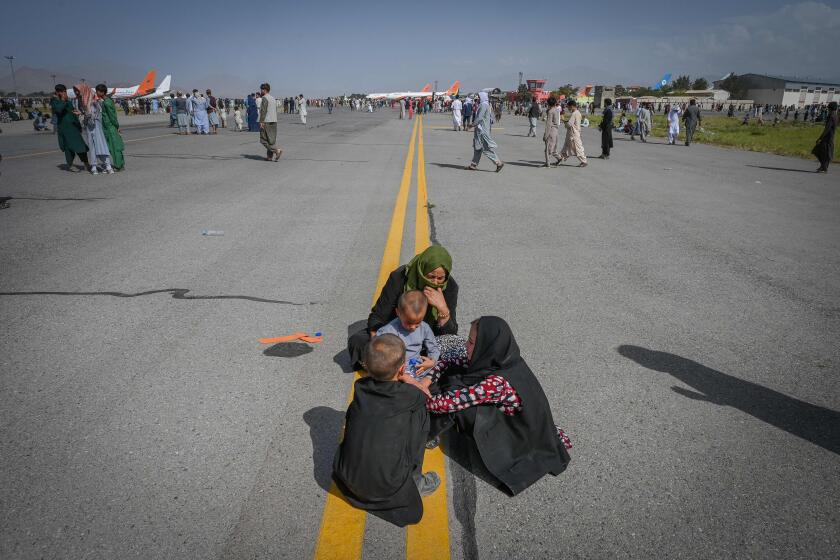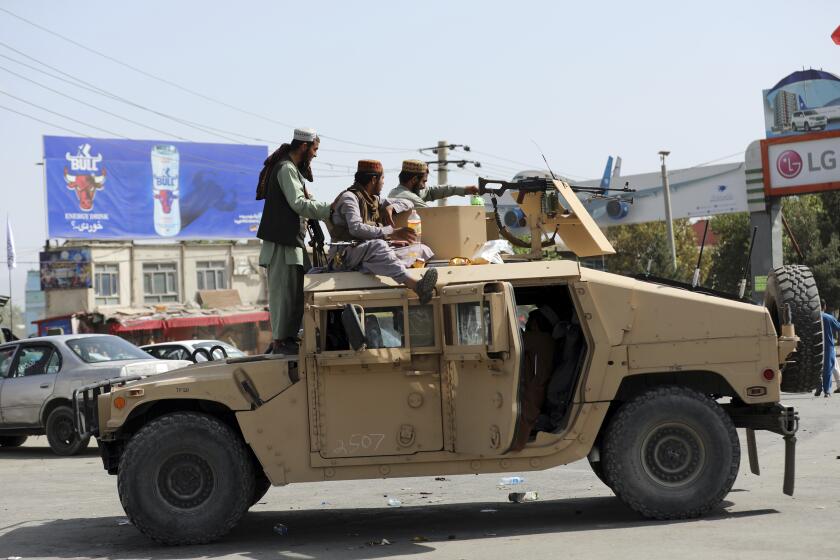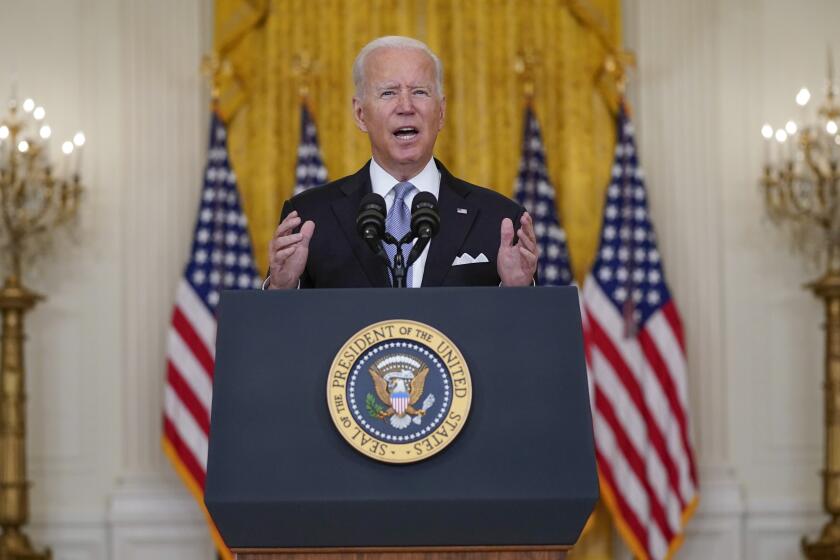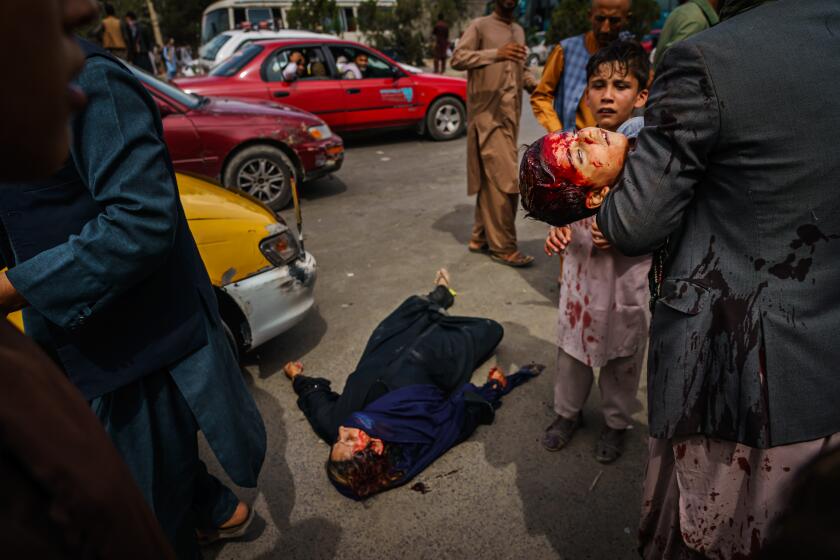By the numbers: Costs of the war in Afghanistan, in lives and dollars
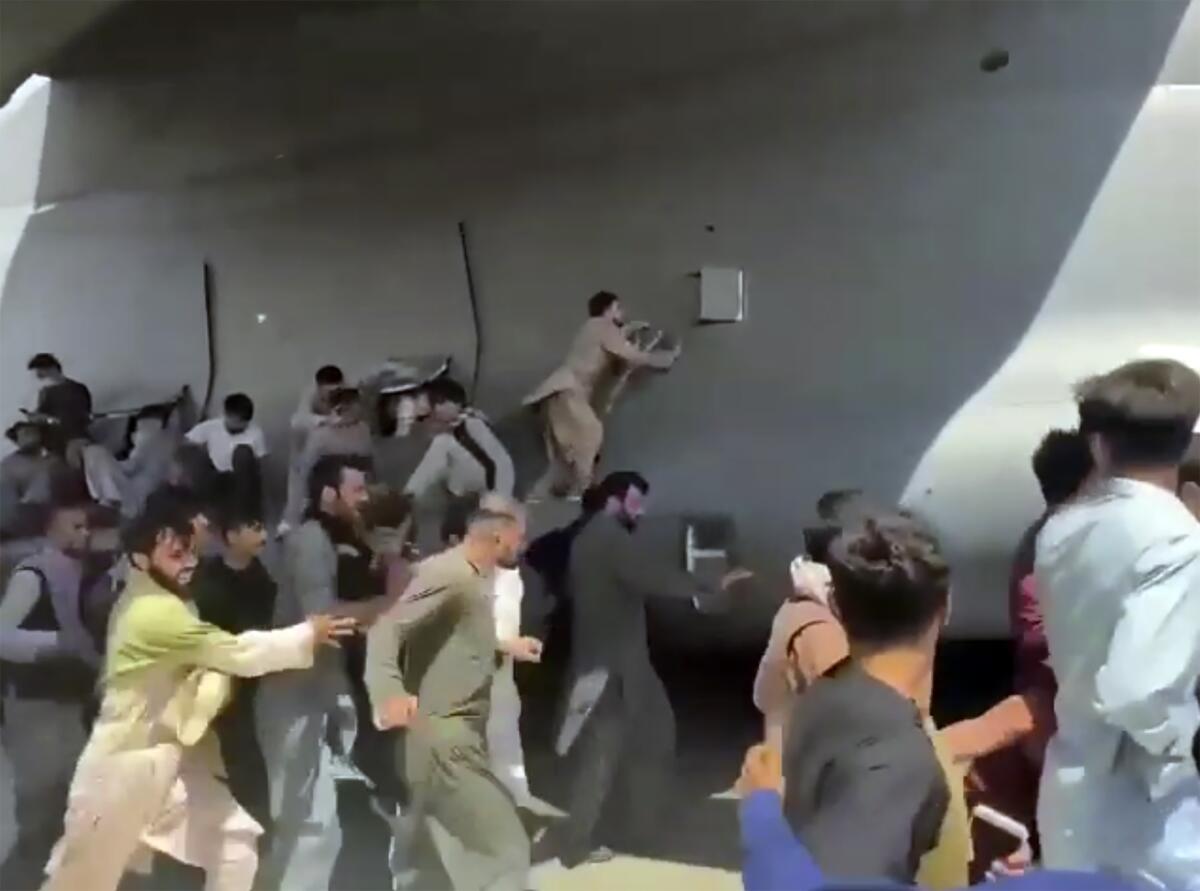
At just short of 20 years, the U.S. combat mission in Afghanistan was America’s longest war. Ordinary Americans tended to forget about it, and it received measurably less oversight from Congress than the Vietnam War did.
But its death toll is in the many tens of thousands. And because the U.S. borrowed most of the money to pay for it, generations of Americans will be burdened with the cost of paying it off.
Here’s a look at the U.S.-led war in Afghanistan by the numbers as the Taliban takes over the country and the U.S. speeds up American and Afghan evacuations. Many of the figures are from Linda Bilmes of Harvard University’s Kennedy School and from the Brown University Costs of War project. Because the U.S. between 2003 and 2011 fought the Afghanistan and Iraq wars simultaneously, and many American troops served tours in both wars, some figures cover both conflicts.
Afghans panic and try to flee Monday after Kabul fell to the Taliban
The longest war
Percentage of U.S. population born since the Sept. 11, 2001, terrorist attacks plotted by Al Qaeda leaders who were sheltering in Afghanistan: Roughly 1 out of every 4.
The human cost
American service members killed in Afghanistan through April: 2,448.
U.S. contractors: 3,846.
Afghan national military and police: 66,000.
Other allied service members, including from other NATO member states: 1,144.
Afghan civilians: 47,245.
Taliban and other opposition fighters: 51,191.
Aid workers: 444.
Journalists: 72.
In possession of military bases and weapons, the Taliban has wound up as the beneficiary of the $83 billion lavished on Afghan security forces.
Afghanistan after nearly 20 years of U.S. occupation
Percentage drop in infant mortality rate since U.S., Afghan and other allied forces overthrew the Taliban government, which had sought to restrict women and girls to the home: About 50.
Percentage of Afghan teenage girls able to read today: 37.
Oversight by Congress
Date Congress authorized U.S. forces to go after culprits of Sept. 11 terrorist attacks: Sept. 18, 2001.
Number of times U.S. lawmakers have voted to declare war in Afghanistan: 0.
Number of times lawmakers on Senate Appropriations defense subcommittee addressed costs of Vietnam War, during that conflict: 42.
Number of times lawmakers in same subcommittee have mentioned costs of Afghanistan and Iraq wars, through mid-summer 2021: 5.
Number of times lawmakers on Senate Finance Committee have mentioned costs of Afghanistan and Iraq wars since Sept. 11, 2001, through mid-summer 2021: 1.
President Biden addressed the American people about the messy U.S. pullout from Afghanistan. He stood by his decision and said there was no good time to leave.
Paying for a war on credit, not in cash
Amount President Truman temporarily raised top tax rates to pay for Korean War: 92%.
Amount President Lyndon Johnson temporarily raised top tax rates to pay for Vietnam War: 77%.
The Taliban swept into Kabul and seized power on Sunday after President Ashraf Ghani fled the country.
Amount President George W. Bush cut tax rates for the wealthiest, rather than raise them, at outset of Afghanistan and Iraq wars: At least 8%.
Estimated amount of direct Afghanistan and Iraq war costs that the U.S. has debt-financed as of 2020: $2 trillion.
Estimated interest costs by 2050: Up to $6.5 trillion.
The wars end. The costs don’t
Amount that Bilmes estimates the U.S. has committed to pay in healthcare, disability, burial and other costs for roughly 4 million Afghanistan and Iraq veterans: More than $2 trillion.
Period those costs will peak: After 2048.
More to Read
Sign up for Essential California
The most important California stories and recommendations in your inbox every morning.
You may occasionally receive promotional content from the Los Angeles Times.
